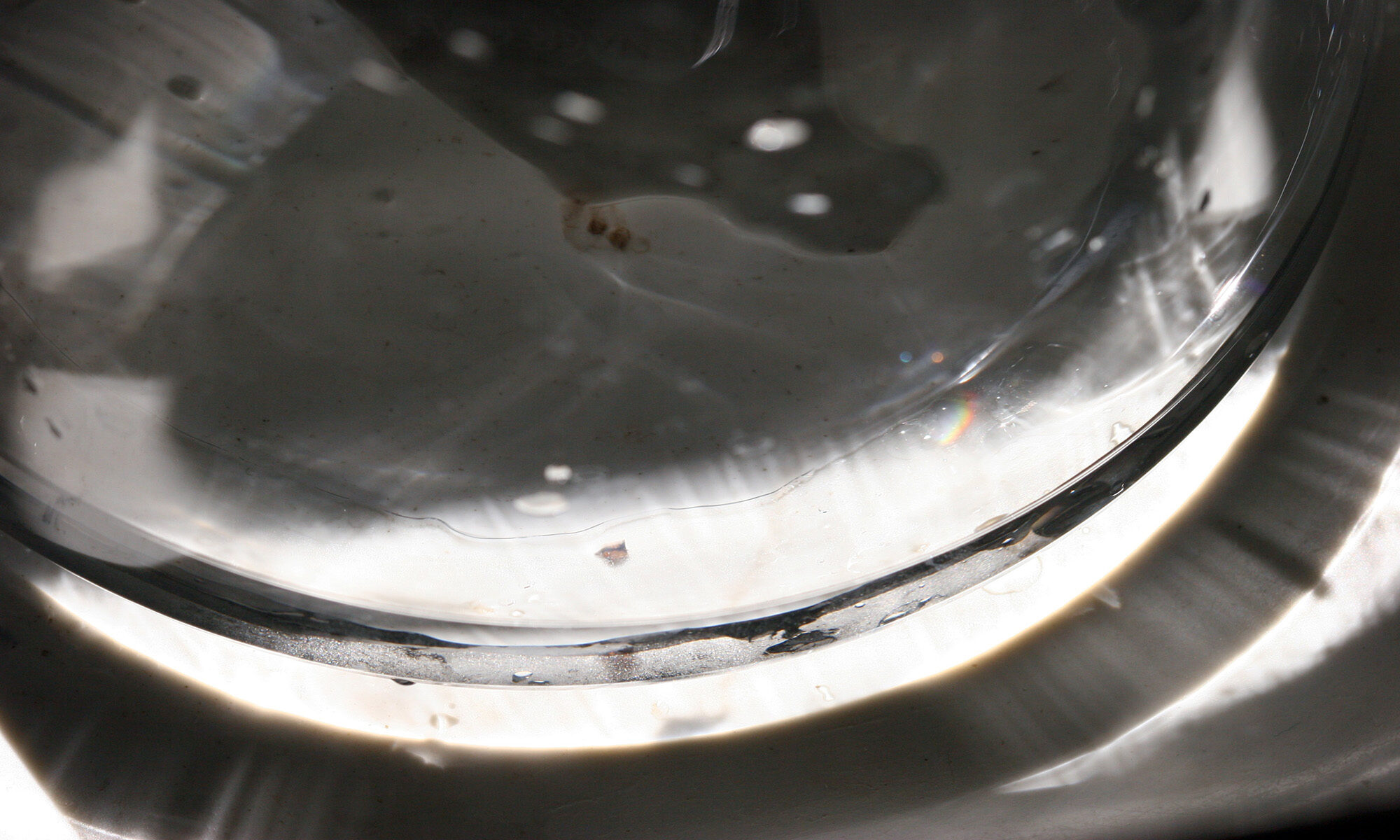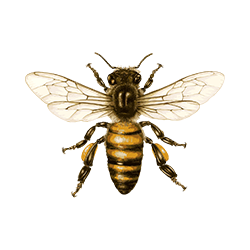• Chapter i, (∩`-´)⊃━☆゚.*・。゚
Man must be classed among the brutes, for he is still a very awkward and salacious biped. What shape he will assume in the future is vague. There are many traits of early man he has lost, and it is plain that he is much more given to falsehood, robbery and lawsuits than the primitive. The first two-legged man scratched himself because he had an itch. Men now lie and steal for this pleasure. Primeval natures wallowed without thought, but soon as men began thinking how pleasant it was to rub themselves and to have deliriums from mud, they employed their minds to achieve what paleolithic mankind did without being lascivious.

Men lie, not alone for profit, but to root in Circe’s mire. No pigmy or cave-dweller wears more bizarre or dirty raiment than present-day man. He is often as offensive as the gland on the back of the Brazil peccary. He would rather tell a lie than the truth because his sole purpose is to be a grub.
He is the most ridiculous beast on the earth, and the reason for this is his mind and his pudendum. He sacks nations, or throws away his reason to see the petticoat of Aspasia or Helen empurpled by murex or the lichen at Madeira. The procreative organ in the camel is behind, but in man it is in front, and unless he is too fat to look over his belly, he pays more attention to this gibbous organ than to his arms, his talus, or anything else. He frequently forgets how his arms look, and is surprised to find a wen on his jaw, and he rarely knows whether his pupils are brown or ochreous, but he is always mindful of his testes hanging between his legs like folly.
In the Book of Enoch the scribe says that the first twolegged creatures had the private parts of great studs, and it may well be that Methuselah and Jared and Mahalalel were mountains and that from their middle hung hills which were their organs of generation. Otherwise, it is impossible for one to imagine how they could live for nine hundred years without wearing out their genitals. It is known that Og, King of Bashan, had an iron bedstead seven cubits long, and that the giants of Anak had six fingers.
Adam bare stones long before he begat Seth. Human life began as procreative mud, and later man was a shark with a human face. There was a human species with a lion’s mouth and the legs of a giraffe, for anterior to the neolithic period diverse animals mingled. Many of our traits are found in the countenance of the bear and in the lip of the pard. The story that the pigmies were chased from the River Strymon by cranes is also a fable of our bird origin.
The old gods were ocean, rivers, animals, fish, birds; Noah was a fish, and Plato supposed that Oceanus was the father of Saturn, and there is as much natural history in this as mythology. Men and rivers are demigods and beasts; the Scamander is the river’s mortal name; Zeus called the fierce water Xanthus; in the Iliad it is reported that the bird, said to be named chalcis by the gods, was Cymindis among men. This is the heroic conception of human fate.
Pleasure brings about the most violent transport in men, and of all the animals in the earth none is so brutish as man when he seeks the delirium of coition. Democritus of Abdera, unable to bear being stung by any female foot in sandals, or round skirt, was said to have plucked out his eyes. He was as mad as a boar for the shape of Venus; when the testicles of the boar are swollen he is at times so beside himself that he rubs them againsta tree until he is castrated. The female deer hates copulation because the penis of the stag is as tough and spinous as a palm leaf; the pain the stag gives her is considerable but she cannot overcome her passion for him.

One marvels what man will do to have his skin scraped. Antony lay with Cleopatra at Daphne for this foolishness, and though he gave all his force to her, his delights were not as long as those of the ordinary fly. One cannot submit alittle to sexual excitement without hankering after more such raptures. When birds are continent their testes are internal, but after sexual intercourse the penis is very conspicuous.
Whether man is more lecherous than the partridge is doubtful, but he is not as chaste as the raven,who bleeds from the eyes during coition. The man of sensibility is not satisfied with ordinary coupling; all the arts of Lais of Corinth cannot furnish his skin and veins with the infinite sensations he demands. Pain affords him infatuate happiness unknown to fourlegged creatures. He is almost the only animal that cohabits at all times. With the exception of the pigeon, a bird which abstains only a few days in the year, man has the most lickerish tail of all beasts. This has made him very unruly, and double in his words and deeds. Unlike the elephant he has no seasons for his venery. This pachyderm, after impregnating the female, avoids this excitement for two years.
The elephant is an exemplary teacher. It is in many respects a rational animal, and repents of its anger, which is rare among men; when it kills its master, it grieves and sometimes starves to death. The dam suckles her young six years, and many elephants live as long as people. When an elephant is sick he is given wine to drink, and when he has an eye disease, these warm, friendly orbs are bathed in cow’s milk. His wounds are healed by butter. These are the simples that the Homeric heroes gave to each other at Troy, and the poet of the Iliad, as well as Plato, would have paid the tenderest regard to this superior beast whose diet, medicines and habits are far better than those of the vast multitudes in the earth. The elephant, doubtless, was no less a monitor than the heifer which is so often seen beside the seated Buddha.
Countless adulteries are committed without lust, and with no thought to the peril which attends this folly. Animals do not give each other the pox; when men attempt to lie with a beast it rejects the malady that is said to be the companion of human genius. The adulterer is more senseless than the earthworm who keeps part of his tail in the hole he inhabits when copulating so he can disappear at once should he see an adversary. The tibulz hide in the hedges all day, and seek the delights of the female at dusk.
Most people are furtive, but very few are ashamed; the elephant prefers to copulate near an obscure river bank, and the camel retires to the desert to rut. Modesty has been undermined because it is not generally known that the camel, more continent in his thoughts than a modern vestal, requires a whole day to complete such exercises.
Few labor for anything else but to exchange their sexual properties with blowsy dowds, or to rival the fox which has a bony penis: even the impotent are like the aged boar who waits for the tired female to lie down before he will risk his feeble appendage.
When the camel opens its mouth it looks like the greatest ass, though the ancients made the strongest bowstrings out of its pudendum. The egg of the sepia pretends to be black myrtle seeds; the vine the polypus deposits is its ovum.
The rhyades remain quiet until the equinox, and the grasshopper is said to sit upon the olive and reeds when it casts its skin, but man now stays in one place only long enough to void or feed. His irregular habits and haste make him the inferior of the polypi which unite only in winter, and these creatures conceal themselves for this reason for two months.

The tortoise gives a month to coition. The moose cannot have commerce with a red deer that is too short, but men and women of sundry sizes are suitable to each other. Andromache had too long a body, but not for Hector. Nubian dwarfs were ravishing morsels in Egypt. The pigmies who rode on the backs of partridges, which was a way of saying they were concupiscent, satisfied the giantesses of the Thermodon.
The puma never utters a cry when he mingles with the female. Bucks and does herd separately after the rutting season; man is incontinent whenever-he has the occasion.
Men are more obscure to themselves than the elm or marine shells. The solens perish after they have been taken away from their borning place; the fir is comely in the sun, and the cedar is a Saul in the mountains. Man does not know when he should plant, or from whom he can glean, or what town is his stony Medusa. The sepia deposit their ova near the river Thermodon, for its waters are warm and potable; the eels seek reedy ponds, and the pregnant red mullet lies among the rockweed. Paul the Fourth was an ascetic until his eightieth year, but when he became pope, he sported for hours at table as any mare in heat.
Men are too unstable to be just; they are crabbed because they have not passed water at the usual time, or testy because they have not been stroked or praised. The habits of animals can be ascertained better than the mien of a philosopher. When stags are bitten by the phalangius they eat crabs and are healed, but if a man has had a poor or dour sleep, he is waspish the whole day, and is likely to curse his parents.
There are certain fish that only breed in the Pontus, and many of the tunnies run to the Pillars to spawn. The halcyon appears only at the setting of the Pleiades and during the solstice. The crocodile is a modest brute whose penis and testicles are internal, and he could be regarded the peer of saints did he keep these members there. The polypus hides its ova in holes which is a lesson for modern women who, when they are with child, go through the streets showing the results of their shame. When the mare wants to sport with the stallion she makes water. But this lubricous mammal is continent compared with man, and he eats herbs, barley and oats which is a diet similar to the sacred table of Pythagoras. One has to travel to India to find a savant as herbivorous and savory as this extraordinary brute.
We scoff at Alexander for burying his horse Bucephalus, but the stone of that stallion shows that he had the separate toes of a human being, and this monument stands in front of the temple of Venus Genetrix. Bucephalus was so named because of the breadth of its head. Plato means wide forehead, and it is interesting to add that the philosopher came of the family of Hippias who were horsemen. The horse is so marvelous to behold that Semiramis was seized with the wildest passions when looking upon this carnal beast.

The horse goes mad pasturing by himself; separated from the human flock man loses his reason. Nietzsche, the wildest intellect of his century, lived in solitude, a Dionysiac disease which in crazy horses was known as the hippomania. In his last Bacchic throes he flung his insane arms about a horse standing in the gutters of Turin.
No one but a perverse person takes exception to horse manure. Droppings of many animals are more healthful than those of people. Human dung, except that of primitive races, is unclean. When the stag’s horns are most perfect he has a very offensive odor; unlike man, who wears the same skin all his life, the stag casts his horns, the bird moults, and the despised python sloughs off his vile coat; man’s despair is that he smells; he is garbed in the same skin until he rots in the tomb.
The Aztecs sold pots of human excrement for working their leather. Civilized nations regarded primitive man as a savory beast. The ancients, having the highest esteem for the offal of kine, said the oxen of the Sun were stalled near the Ocean where the seascum resembled dung.
Man imagines that because he stands on his legs he is intellectual, but the penguin is a biped who feeds until he can scarcely move; the bear too can stand up. Man’s passion for disorder, upheaval and bedlam explains his greed. He attempts to prove that whatever man does is for his advantage. This is not true of him, and sometimes quadrupeds, generally reasonable, are demented or perverse. It is fabled that the mongoose breaks the eggs which the crocodile hatches in the mud though it does not eat them nor derive profit from this act. Man’s neck is as long as Plutus: Solomon said, his eyes cannot be filled with seeing nor his ears with hearing. He is so bored that he seeks the naive existence of the sow. Having devoured all the experiences possible to the biped, he now wants to be primitive which he thinks is the same as being chaotic, torpid, or supine the whole day. Baudelaire asserted that he had the wildest desire to be aboriginal, because standing on two legs was too trivial and average for him. Man imagines that could he crawl again as an infant or as any brute in the field, he could recapture a primeval existence. Others are only content with the testicles of animals. Could man moult his skin as the bird its feathers, and have new flesh, he would be innocent. The stag casts his horns every year, and the horse may lose his hoof, but each acquires what he has shed. When the teeth or the hair of men decay, they do not grow the tusks they show whenever they desire sexual frenzies, or the hair that makes them prance and sport and neigh. Were it possible for man to shed his feet or his hands he could have a naive heart.
Man pines to live but cannot endure the days of his life. The learned, crouched over their inkpots, covet the customs of the savage who cohabits with a Lais or Aspasia of the Amazons whenever he pleases, or envy the panther. The poet wants to be an animal. “Submit, my heart, sleep the sleep of the brute,” said Charles Baudelaire.
Men have more sorrow from their entrails than animals; except backward people or ancient races they have fewer rites pertaining to their ordure. They excrete when they are bored or want a savage pleasure. The father of Beatrice Cenci drew the close-stool over to the fireplace and voided in the presence of his wife and daughter.
The Mohammedan of the old order wipes his buttocks with his left hand since he uses the right one to handle food, plant vines, or to greet people. A Moslem woman can divorce a man with a reeking breath, a fault unknown among the natives of Otaheite. Modern man rushes to the water closet, and after the most summary ablutions, extends his hand to the first person he meets. The ancient Essenes had strict tenets regarding defecation and its burial in secret places. Man at present dungs in his own house and considers himself a delicate creature.

The anthropoid is arrogant, and when he finds a remedy for a malady that is the consequence of a cormorant throat he is elated. Tantalus can never eat or drink enough countries, rivers, or carcasses, and this gluttony is the cause of nearly all human woes.
When the sow has a certain disease, it goes to the mulberry for relief, and when the horse falls into a declining melancholy, the sound of the flute will assuage this fever for which men have found no nostrum. The river horse, after overeating, comes ashore and presses its hide against the sharp rushes until blood flows from a vein in the leg. When ill the stork sups upon marjoram; and stags also, in failing health, graze upon wild artichoke. The pigeon has exquisite revulsions, and at times disrelishes his table as much as men, and then turns to bay leaves for food.
Despite all the spital houses in the world, if a man suffers from strangury, can he do much more than the Sudanese who entreat their idols to let them urinate without difficulty. If it please Zeus may we pass water; to prevent chafing, if Cato be true, put a small branch of Pontic wormwood under the anus.
Socrates described love as the sting of a tarantula. We see that desire dominates the old as well as youth; the senile forget to button their clothes, and leave the door of their trousers ajar, showing what is no more than arelic of a quondam tower. Men lose their goatish powers long before their minds; Montaigne complained that when he was somewhere in his fifties he could not raise that sleepy animal more than three times a week.
The anthropoid is more luckless and unintelligent than animals, and the remedy for his ills is not progress, going forward, which is always to his grave, but turning backwards. He has extirpated most of the beasts which he no longer has as tutors. As a result he does not know whether to cohabit with woman, with man, or with sheep, and there are some who are enormously aroused by the sight of a mare. There is a breed of dog that will copulate with a wolf, and it is believed that a species of dog is derived from the tiger, and there is the Babylonian cameleopard; but, for the most part, the stallion seeks the female of its kind, and the elephant hankers after the same sort of animal that bore him.
Man is more incoherent than any beast in the earth. Schopenhauer has said that pleasure is the absence of pain, but it is uot true. Man is not content with negative delights or even with positive transports. Some of his immoral deeds lacerate him, and he finds much satisfaction in being wounded. Man hates what he does, and that is what is moral in him, but he continues to do it, which is why he is Euripides, a spider, or the Dryophis fulgida. Man lies in ambush for all creatures, for he is the hunter; the Psalmist cries out that he is the turtledove about to be devoured by the multitude.
The whelp is most greedy for the soul that has fallen down to the ground. In the Psalms the soul flees to a hiding place in the mountains. The prophet rides upon a Cherub who is one of the fowls of the air. Man who is the master of the sheep and the oxen has the tender feet of the hind. He crouches before the bulls of Bashan and dreads man continually. But a little while he is a tree planted by the rivers of water, for all lurk in lairs to harm his branches.

Man is either too stupid or vain to know himself, and too self-loving to understand anyone. He cannot endure his own vices in others, and he is least just when he is railing at the faults of people. Man is the tragic brute because he can never be as sure of others as the ass or the bull who knows that he is the booty of the wolf. A strong foe is better than a weak friend; the heron is always on guard against the eagle; the anthus is a reliable opponent of the horse since both covet the pasture. The deer when it has produced the fawn hides, for she knows what beast will hurt it. The wolf is the enemy of the ass, bull and fox; a mountain cat will embowel a porcupine; in a narrow defile the panther will leap upon a small dog instead of a human being. Men have no such certainties, and the more erudite they are the fewer companions they have. Aristotle in his old age said, “O my friends there is no friend.”
Everything in man is double because he has testes. The old Nile god had the form of a man with a woman’s breast wearing a cluster of water plants. The Egyptians extracted from the meanest worm the paint to design jars and the sacred, funeral amphorz. In the time of the Pharaohs dense thickets were said to be the resort of malefactors. This was a proverb, and yet among the Quiché Mayans the gods were seated in the ravines, the forests and among the mosses. Not everyone that goes into the wilderness is Elijah or John.
If one considers the acts of his youth he wonders why he was ever young; or if he ponders his later vices he asks himself why he is still alive. In what manner is Messalina superior to the puma, or is anyone any better than a beetle which takes such pleasure in the fungus, called the English phallus, which has a most odious smell. The testicles of the American lizard give offa musky odor, and the monkeys in Brazil when stroked have as pleasant a scent as Alexander of Macedon. Priam had fifty bedchambers, and despite such opulent amorous experiences had no more sense than to select as his consort the termagant Hecuba. Solomon’s bed linen was fragrant with Sheba and the perspiration of a hundred concubines, but were they any dearer to the nostrils than the musky testes of the lizard? There is a paradox: the Egyptians claimed that their land was infested with scorpions until it was settled by Apis. The serpent in Eden gave Eve knowledge of the phallus, and this is the source of art, science, poetry, wisdom, and perfidy.
We weep because the human race is no better than it is. The aquatic frog has the tail of a fish until he makes a twig or a blade of grass his house, then he loses his tail and grows legs. Nature advises the frog far better than man; a noddle endeavors to employ faculties he does not possess, and the eunuch burns for Jezebel.
Where is Apollo who rested his foot on the skull of an ox; where are the wild horses, the fawn, the roe, the cubs of bears that were brought to the altars of Artemis? Shall we wed, or woo, or tremble?
– Edward Dahlberg


It is with no little difficulty that I confess that the enlightenment herein is frequently coupled with an amplified variety melancholy.
I Love it.